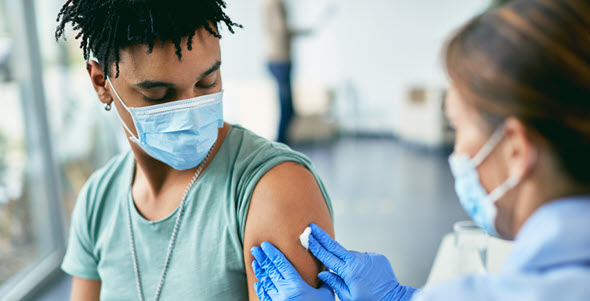By the bioMérieux Connection Editors
National Health Center Week (#NHCW2021) recognizes and honors the impact and importance of Community Health Centers, throughout American history and today. The annual event’s goal is to raise awareness of the accomplishments and overall mission of Community Health Centers.
This year’s event runs August 8-14, and the theme of 2021 National Health Center Week is “The Chemistry for Stronger Communities.” The week is dedicated to front line providers, staff and beloved patients who lost their lives during the ongoing COVID-19 pandemic.
The Impact of Community Health Centers
The Human Resources & Service Administration defines Health Centers as, “community-based and patient-directed organizations that deliver comprehensive, culturally competent, high-quality primary healthcare services to the nation’s most vulnerable individuals and families.”
Community Health Centers provide primary, preventive, and comprehensive care to medically underserved communities across every state and territory in the United States. They most commonly service areas where there are economic, geographic, or cultural barriers to affordable and accessible healthcare.
From primary care to pandemic response, the impact of Community Health Centers can be felt by everyone in the nation. As of 2019, there were over 11,000 community health service sites in the United States, serving over 30 million Americans. Community health centers reduce the taxpayer impact of healthcare and save the healthcare system over $24 billion each year.
How Community Health Centers are Helping to Fight COVID-19
The presence of Community Health Centers has become more important than ever as the COVID-19 pandemic continues, especially with the emergence of the Delta variant and its impact on healthcare systems and vulnerable populations.
Community Health Centers have continued to provide primary care services while innovatively shifting their structure of care to accommodate high volumes of COVID-19 testing, contact tracing, and the administration of COVID-19 vaccines.
They have played an essential role throughout the pandemic, reaching medically underserved groups who may not otherwise have access to COVID-19 testing, vaccines, or care. Their strong presence throughout the pandemic has also helped reduce the burden on hospitals and lower the rate of hospital admissions due to COVID-19 infection.
In 2020, Community Health Centers tested more than 10 million patients for COVID-19. Community health centers have also vaccinated over 3.6 million people, averaging 500,000 COVID-19 vaccine initiations a day during the first three months of the Health Center COVID-19 Vaccine Program.
Community Health Centers have faced numerous challenges throughout the COVID-19 pandemic, from the closing of centers to health center employee infections. However, they have made an enormous impact on not only medically underserved communities, but all the United States through their care and COVID-19 response.
Do your part to help Community Health Centers stop the spread of COVID-19 by getting vaccinated. Locate a Community Health Center near you at https://findahealthcenter.hrsa.gov/.
Honoring Healthcare Workers and Community Health Center Patients
You can honor healthcare heroes, those who lost their lives to COVID-19, and help raise awareness of Community Health Centers by celebrating National Health Center Week. There are events happening across the country, as well as specified focus days to highlight aspect of community health centers.
The 2021 National Health Center Week focus days are:
- Sunday, 8/8: Public Health in Housing Day
- Monday, 8/9: Healthcare for the Homeless Day
- Tuesday, 8/10: Agricultural Worker Health Day
- Wednesday, 8/11: Patient Appreciation Day
- Thursday, 8/12: Stakeholder Appreciation Day
- Friday, 8/13: Health Center Staff Appreciation Day
- Saturday, 8/14: Children’s Health Day
To learn more about National Health Center Week and the importance of community health centers visit https://healthcenterweek.org/ or https://www.nachc.org/.
Opinions expressed in this article are not necessarily those of bioMérieux, Inc.



